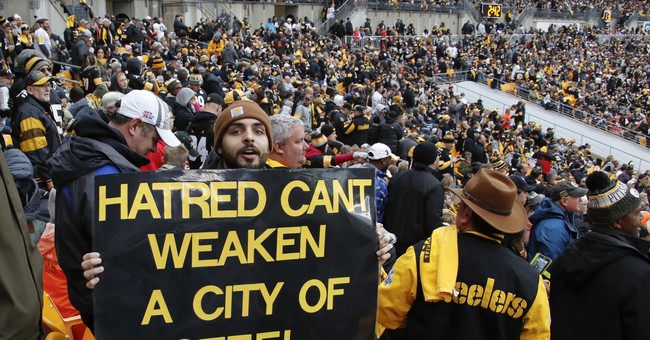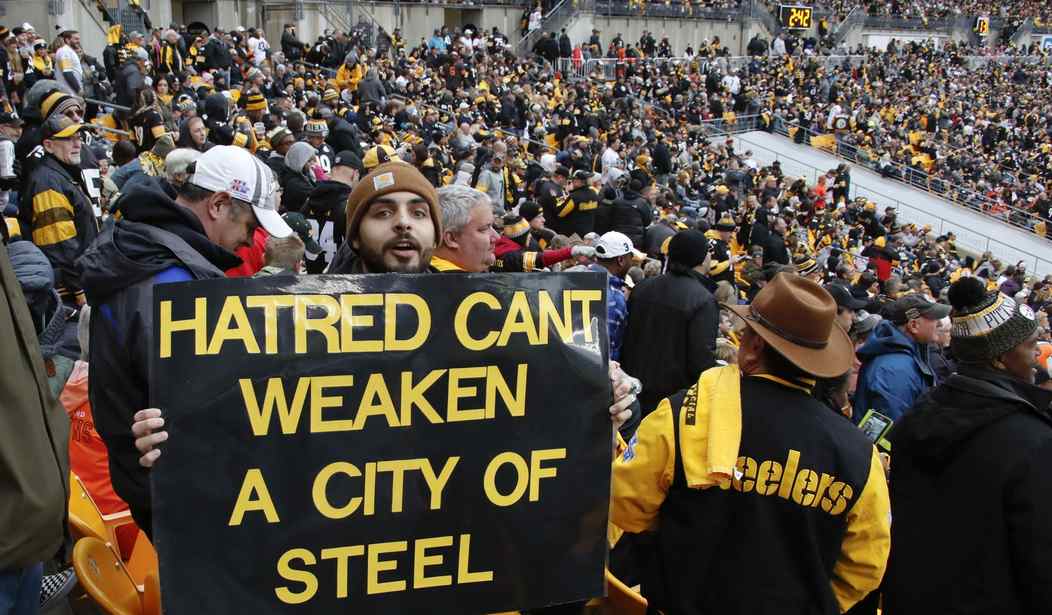
It has been mentioned repeatedly throughout 2020, including on the latest episode of RED + BLACK: there is a pall hanging over our nation that is affecting everything from our decision-making capabilities to our national discourse – all due to the challenges from this earth-shaking year.
Sadly, I believe that the amazing Kira Davis is right: we are not going to move past the emotional, social, and civic woes that we are incurring as a nation anytime soon. Most are unable to be impervious to the impact of the tensions throughout the country, including those that are generally well-intended, critically-thinking, and culturally attuned. Folks are going to continue to make questionable decisions because of this climate. As a result, those decisions will continue to impact our nation in controversial ways. This year, even the easiest of decisions or the most rational of thoughts become muddled, leading to unforced mistakes that often take away from the power of healing and fuel the fires of dissension unintentionally
This week’s example of this dynamic resides in Sixburgh: the six-time NFL Champion Pittsburgh Steelers.
As cultural leaders working in a region dealing with social protests and unrest driven by both the pandemic as well as recent issues over the years, it was easy to understand why the Steelers would choose to be out front as leaders, highlighting the need for social changes. However, as the most high profile entity in the region (and one of the most notable and beloved sports franchises in the world), the team needed to ensure that its gesture was profound and above reproach. It needed to be one that was unifying and as devoid of controversy as possible – even while undertaking a controversial act.
Putting a name on the back of the players’ helmets to signify the need to address tragedies of police misconduct (i.e., a radically-differed dynamic than merely “defunding the police” or flat-out targeting police officers in cold blood) while also making the symbol about justice. It could not be done in a fashion that allowed for subjective interpretation of a specific incident or contemporary debates. Further, it would be ideal if the Steelers could show a tie to the social issue that was deeper than regional bonds and shared headlines.
The team chose the late Antwon Rose, Jr., as the person to highlight – initially reported as a result of a team vote yet later stated to be by way of a decision “…mostly made by everyone ‘upstairs’ (in management)…” Over the course of the past several days, this decision has devolved into various controversies stemming from the initial act of choosing Rose as the one to highlight. One player decided to honor another African-American man killed in his youth – Alwyn Cashe, a Silver Star recipient who died after rescuing fellow soldiers from a burning vehicle after an attack in 2005. A co-captain of the team followed suit, deciding to explain why he was opting out of keeping Rose’s name on the back of his helmet moving forward. Eventually, the team was forced to allow players to “opt-out” of the Rose tribute.
Regardless of how people may feel about the validity of honoring Rose’s tragic death and the circumstances around the shooting, the Steelers – an organization known for their insightfulness, poise, and forward-thinking nature – could have avoided this controversy with a simple selection. Instead of choosing to dive into the highly-contentious, raw, and emotionally-charged atmosphere surrounding Rose’s death, the Steelers could have taken another high profile tragedy that also rocked the nation, but one without the current emotionalism and with a relevant tie to Steelers Nation.
Why not honor Jonny Gammage? Jonny was an African-American businessman and volunteer whose cousin (Ray Seals) was a starter on the 1995 AFC Championship team – a championship won mere months after Gammage’s tragic death at the hands of 4 police officers during a “routine” traffic stop on October 12, 1995. It was a death that occurred in Brentwood, PA some 9 days after another case involving Brentwood led to racial divisiveness: the 1995 OJ Simpson verdict.
While both deaths were tragic and avoidable, the Gammage murder was the epitome of why African-Americans are protesting in the streets some 25 years after the passing of the 31-year-old budding entrepreneur. Gammage was driving his cousin’s Jaguar in a mostly-White portion of the region around 2 am in a possible “driving while Black” incident. A traffic stop stemming over an expired Florida license plate registration (i.e., this traffic stop was in the Pittsburgh, PA metropolitan area) resulted in 5 police officers coming to the scene to address this potential moving violation by the driver – the 5’ 7”, 165-pound Gammage. Eventually, Gammage died of “…asphyxiation due to pressure applied to the chest and neck…” as a result of being pressed to the ground after being beaten by police.
A native of the State of New York, Jonny was acknowledged by all as a rising young man as a kind young man, gentle, thoughtful, and non-assuming. His dying words were to a police officer he had just met and apparently spoke professionally with before the incident turned tragic: “Keith, Keith, I’m 31. I’m only 31.”
(Keith Henderson, one of the officers on the scene, eventually became a witness for the prosecution in the subsequent trials against the other officers.)
Jonny’s cousin was a starting defensive end for the Steelers at the time. Seals played through the pain, as did the team, making it to Super Bowl XXX after a miraculous comeback in the AFC Championship Game at Pittsburgh’s Three Rivers Stadium. Seals’ teammates Rod Woodson overcome a horrific knee injury to play in the Super Bowl. The team made the most out of a tragedy that impacted their team into a 3-4 start before making the world’s most famous sporting event. Uniting and healing through the multi-layered pains around the Gammage tragedy symbolized everything that we need to remember and work through as a nation now. As well, Jonny was a part of the inner circle of the Steelers family, part of the larger Steelers Nation.
And yet, perhaps the failure in overlooking Jonny or the decision to not pick him highlights the woes of 2020, from our collective fogginess in making the best choices to making the clearest case for our social causes and political support. Concerning police misconduct against African-Americans – from Rose’s failure to receive the innocent-until-proven-guilty treatment that others in America receive in the midst of shootings and crimes to the overreactive actions towards respectful citizens such as Gammage and the late Philando Castile – there are simply too many incidents to remember, account for, or highlight within any one period. Sometimes, there are too many to even highlight respectfully within one news cycle. That notion alone highlights the continued need for appropriate activism, social change, and legislative reform. Yet, if even in the most egregious cases, those impacted directly are hardened to the realities that Black men face regularly in these interactions with the police to the point where the pain and memory subside over time – to the point where a Black member of the Steeler family is not selected over one of the most current cases – what does it say about the nation’s ability to keep focus on the issues regarding this discrimination and not delve into details, “what-about-isms”, and tribal rhetoric?
The Steelers – usually wise and mostly classy – could have highlighted a forgotten-about case that illustrated all that we need to remember about how much work we need to do on race in America. Instead, in the fog of our COVID-driven 2020, they fumbled the chance to show us the way to get closer to our team goals as a nation on issues of race.
Why not Jonny Gammage? It was an easy choice.












Join the conversation as a VIP Member